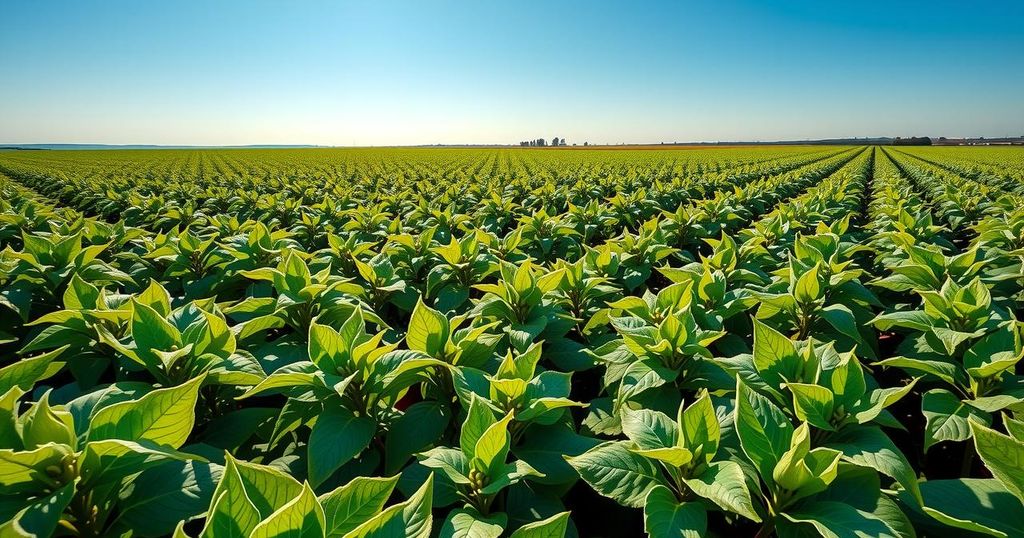Santa Cruz, Bolivia’s soy farmers face a pressing fuel shortage threatening crop harvests, stemming from dwindling currency reserves and local gas production. This fuel scarcity could lead to significant agricultural losses and increase farmer debt. The government is exploring solutions, including cryptocurrency payments for fuel, although farmers prioritize sufficient fuel access despite high costs.
In the agricultural region of Santa Cruz, Bolivia, farmers are experiencing heightened anxiety as a significant fuel shortage threatens their ability to harvest crops. This urgency is particularly acute in a country where agriculture has become a crucial economic sector. The current fuel scarcity results from a decline in foreign currency reserves over the past decade combined with dwindling local gas production.
This crisis has caused lengthy lines at fuel pumps, raising concerns within the government led by President Luis Arce, which has attempted to stabilize prices through subsidies. Joel Eizaguirre, a soybean farmer, warned that inadequate access to fuel would lead producers into deeper debt, impacting the broader agricultural community.
Jaime Fernando Hernandez, manager of the oilseed and wheat association ANAPO, stated that insufficient diesel would jeopardize farm machinery operations, risking the loss of substantial food supplies, including soy, corn, and sorghum. This loss could severely disrupt the food supply chain and affect livestock production, including chicken, milk, and eggs.
In response to the growing fuel crisis and pressure for economic stability, Bolivia’s government has initiated measures to alleviate the situation. They have permitted the state energy company YPFB to use cryptocurrency to finance fuel imports and transactions. Eizaguirre expressed a preference for paying a higher fuel price rather than experiencing shortages, as he faces significant risk this upcoming winter season.
He remarked that, despite the high parallel exchange rate surpassing 11 bolivianos per dollar, having sufficient fuel remains more critical than the cost itself. He emphasized, “Personally, I’d rather have fuel cost 11 bolivianos than not have enough fuel to harvest our grain, or not be able to plant during this approaching winter.”
The ongoing fuel shortage in Bolivia is significantly impacting agricultural productivity, with farmers in Santa Cruz expressing deep concern over their ability to harvest crops amidst rising costs and governmental pressures. The situation highlights the interplay between economic stability and agricultural sustainability in Bolivia, emphasizing the vital importance of fuel access for both current harvesting and future planting. Efforts by the government to allow cryptocurrency for fuel imports may provide some relief, yet the priority remains on ensuring an adequate fuel supply for farmers to thrive.
Original Source: www.tradingview.com




